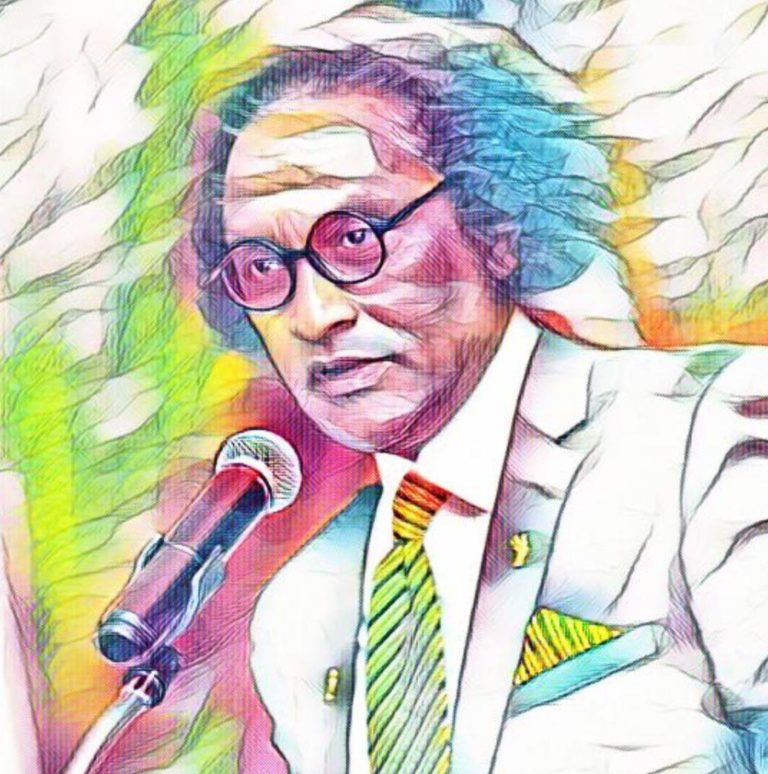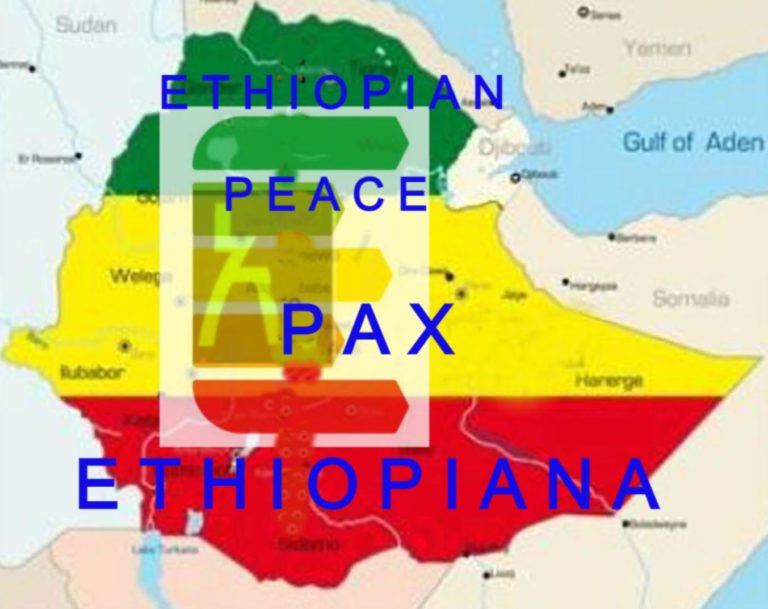Did Reagan Get it Right on Immigration and Refugee Policy?
 Lately, I have been talking about “Republunatics” and “Republooney Toons”.
Lately, I have been talking about “Republunatics” and “Republooney Toons”.
Some may feel I have been ragging too much on the Republicans and the Republican Party.
Not to worry. I have much so more in store for the Democ-rats.
But looking at the current crop of 17 (?) republican presidential candidates licking their chops for the White House, including Donald Trump and Ben Carson, I am tempted to recommend that all of them be “5150’d”. (That’s the section of the California Welfare and Institutions Code which authorizes the involuntarily commitment of a person with mental issues for psychiatric observation if that person is a danger to self or others.)
Only one problem: How does one “5150” an internationally-celebrated neurosurgeon?
Isn’t hilarious that Trump (I did not say chump) became the unexpected trump card of the Republican Party?
Truthfully, is Trump a trumped-up Republican?
Trump talked to Big Bill C. before he announced his White House run? (Or is he in the Chicken Run?)
When asked, Big Bill C. said, “I did not have political relations with that man.”
Is Trump the great Republican hope (I did not say dope) to save Republicans from certain thumping by Hilary C.? Or is it Bernie S.?
I prefer Uncle Joe. Straight talkin’ Joe.
During the signing of the “Obama Care” bill, Joe whispered to Obama, “This is a big f______ deal.”
It is a HUGE deal. Thumbs up to O! (Oh! Yeah! I got HUGE problems with O, but I’ll give him full credit for the Affordable Health Care Act.)
Anyhoo…
I am not here to talk about looney toons. Already done that last week.
Or O. I have been talking about him for years.
Hilary C.? You ain’t heard nothing yet!
Like I was saying…
I remember a time when Republicans made sense, in a manner of speaking, that is.
In June 1988, at the U.S.S.R.-U.S.A. Summit in Moscow, Ronald Reagan expounded on his approach to global politics: “Here is my strategy on the Cold War: we win, they lose.”
By 1991, Reagan was chest-beating, “We won! We won!”
He was living in Bel Air, CA then.
Mikhail Grobachev’s response: “The soviet people want full-blooded and unconditional democracy. The world will not accept dictatorship or domination.”
My Man!
Go, Gorby, go!
Was Gorbachev a republican in Marxist clothing? A trumped-up republican, as it were?
Just curious.
I am not interested in talking about Reagan’s victory in the Cold War.
It is Reagan’s immigration and refugee policy that I want to talk about.
Did Reagan get it right (no pun intended) on immigration and refugee policy back in 1981?
(I am not asking if Barack Obama is getting it right today.)
Well, I certainly got it wrong on refugees and immigration.
I believed the 21st century would be the epoch of global peace, understanding and harmony.
After all of the countless wars and umpteen millions of refugees in the 20th century, surely things will make a complete turnaround in the 21st, I consoled myself.
How wrong-minded I have been.
Then again, what do I know?
A utopian Ethiopian!
What I know now is that the first two decades of the 21st century have been the “Age of the Refugee”, the age of the exiled, the displaced, the castaway, the alien, the boat person, the outcast, the stateless and the migrant worker.
Every day hundreds, if not thousands of Africans, risks their lives at sea seeking refuge in the Middle East and Europe.
That breaks my heart and crushes my spirit!
Tens of thousands of Africans have chosen to risk drowning at sea than live under the rule of bloodthirsty thugs who call themselves “African leaders.”
What a sham!
What a shame!
In April 2015, 30 young innocent Ethiopian refugees in Libya were beheaded by the barbaric ISIL.
In November 2013, nearly 150 thousand Ethiopian migrant workers were hunted down like wild animals in Saudi Arabia by police, security officials, mobs and vigilantes.
Many were beaten and tortured and some murdered. Nearly all of them run out of the country.
I don’t hear anyone talking about them much anymore.
I guess that’s why I talk so much about them to myself.
The T-TPLF foreign minister did not lash out at the Saudi government mistreating Ethiopians in Saudi Arabia. He actually apologized to the Saudi government. (The T-TPLF is the Thugtatorship of the Tigrean People’s Liberation Front, lording over Ethiopia today.)
What the hell!!! (Excuse me!)
The fact is al-Assad’s forces and ISIL/ISIS have massacred hundreds of thousands of Syrians and Iraqis since 2011.
There are now some 7 million plus ordinary Syrians and Iraqis displaced from their homes because of government and terrorist violence in the two countries.
In the past few weeks, I have been speaking to civic society groups about Syrian refugees and how and why the United States should help out.
I know Syrians are not Ethiopians.
For me, it is not about nationality. It’s all about humanity.
I make no distinction whatsoever between the suffering of the Syrian people under the rule of Bashar al-Assad and terror of Islamic State of Iraq and Syria and Islamic State of Iraq and the Levant (ISIL/ ISIS) and the suffering of the people of Ethiopia under the T-TPLF.
They are all terrorist groups/regimes victimizing innocent civilians. Click here to see the proof.
Is there anyone who is not aware of the tragic situation of Syrian refuges?
That tragedy has affected all sectors of Syrian society.
The majority of Syrians are Muslims, but a little over 10 percent are Christians.
But the Syrian civil war has been a disaster for all Syrians.
The Syrian civil war is not simply a Syrian problem or a Middle Eastern problem.
It is not just a geopolitical problem for the superpowers who meddle in everybody’s business.
The war in Syria is now an international problem because of the unprecedented nature and scope of the humanitarian crises.
The Syrian refugee problem is undoubtedly the largest forced migration since World War II.
The question is whether the U.S. has a moral obligation to help out the suffering Syrian refugees financially, and more importantly, in terms of asylum and resettlement .
If the U.S. has such obligations, how should it go about discharging it?
The Syrian civil war began in the spring of 2011 during the Arab Spring protests.
Nationwide protests against Syrian President Bashar al-Assad’s government spread quickly throughout the country.
The Assad father and son team had been in power in Syria for over 40 years, the last 15 under son Bashir.
Syrian forces responded with violent crackdowns and the conflict gradually turned into armed rebellion throughout the country.
Today Syria is in the middle of a devastating and unending civil war.
To complicate a situation already complicated, the Islamic State of Iraq and Syria (ISIS) and the Islamic State of Iraq and the Levant (ISIL), both jihadist militant groups, joined the civil war and began occupying Syrian territory.
Over the past 4 years, an estimated 5 million Syrian refugees have fled their country to avoid persecution and death at the hands of Syrian government forces or ISIS/ISIL.
More than 3 million Iraqis have fled the onslaught of ISIS/ISIL, which now control significant portions of Iraq and Syria today.
The statistics on the Syrian refugees is staggering.
In 2013, Syria had an estimated population of 22 million. 5 million or 22% of that population has been transformed into stateless refugees. 57% of Syrian refugees are under the age of 17. Some 2 million Syrian refugees have found safety in Turkey; 1.1m in Lebanon; 700k in Jordan and 150k in Egypt.
Interestingly, the richest Gulf States including Bahrain, Kuwait, Oman, Qatar, Saudi Arabia and the United Arab Emirates have given about a billion dollars to deal with the crisis but their doors have been nailed shut to keep the Syrian refugees out.
Many European countries have struggled to resettle some of the Syrian refugees: Greece has some 250k of them.
Germany says it could accommodate up to 1.5 million refugees this year? That is 5 percent of its population!
Why?
It is in the national interest of Germany.
Sweden has taken in 64k; Bulgaria (15k), The Netherlands (14k), France (7k), The U.K. (7k), Denmark (11k), and Hungary (19k).
The U.S. has accepted 1,500 Syrian refugees.
The U.S. is also the single largest donor in the Syrian refugee crisis shelling out nearly $600 million this year. That is nearly one third of all aid given by donor countries.
Since 2011, the U.S. has been the largest donor of humanitarian aid in response to the Syrian crisis and has given over $4 billion.
International pressure is now building to get the United States to accept more Syrian refuges.
Recently, President Obama said the U.S. will accept at least 10,000 displaced Syrians over the next year.
The Administration has given assurances that the refugees will be processed by the UN but will go through a very robust security clearance process. They will be screened by the National Counter Terrorism Center, the F.B.I., Homeland Security, and the various intelligence communities in the U.S.
The debate over how many Syrian refugees to admit into the U.S. is just beginning.
There are some who say 10k is a drop in the bucket. We can and must admit many more.
Other say, the U.S. should first get its house in order on immigration issues before accepting large numbers of refugees.
The debate is starting with finger-pointing and finger-wagging.
Connecticut Sen. Chris Murphy, a Democrat and Senate Foreign Relations Committee member, blamed the Bush Administration for destabilizing the region and opening the Syrian Pandora box. “I don’t think you can say that the Syrian war wouldn’t have happened if it wasn’t for the invasion of Iraq, but we certainly contributed to the ongoing mess in that region and inside Syria because of our occupation, our invasion, which after a set of circumstances, led to the development of ISIS. … I think we have a responsibility.” Murphy proposed accepting 50 thousand Syrian refugees.
Republican Congressman Peter King of New York, chairman of the Homeland Security Subcommittee on Counterintelligence and Terrorism, was adamant about admitting any Syrian refugees. King criticized President Obama’s plan to accept at least 10,000 Syrian refugees as “putting American lives at risk.”
King said the President’s “decision is in direct contrast to opinion of leading law enforcement and intelligence officials in this Administration [that] we do not have the capability to vet these individuals nor will we be able to develop it in the next twelve months. The Administration is moving forward full speed ahead without the necessary security backbone in place.” He warned, “bringing more than 10,000 unknown individuals into the Homeland [is inviting] another Boston Marathon Bombing.”
King is trying to stoke public fears of radical Islam and terrorism sneaking into America disguised as Syrian refugees.
What options are available to the U.S. on refugees and immigration in light of domestic political realities and the 2016 presidential election?
The fact of the matter is that it is far more preferable for the Middle Eastern countries to resolve the Syrian crises than to have America or Russia getting involved and mucking it up.
But the complicated problems of the Middle East have defied solutions for millennia.
So I would like to ask if it is possible for the U.S. to come up with a practical policy framework to help alleviate the Syrian refugee humanitarian crises and formulate a reasonable immigration policy?
Alternatively, is our option to muddle through the crises and hope it will go away in time?
First, the United States has a long history of providing safe haven to those fleeing oppression, persecution and war.
Since 1975, the United States has resettled nearly 1.5 million refugees displaced by the Vietnam War through the Indochinese Refugee Task Force.
Between 1979-80, the U.S. provided sanctuary for over 320,000 Vietnamese refugees.
Between April –October 1981, the U.S. admitted over 125,000 Cubans, during the Mariel boatlift, including more than 80,000 in one month alone.
Tens of thousands of Somali refugees, as many as 150,000, have been resettled in the U.S. over the past 3 decades.
Hundreds of thousands of refugees from the former Soviet Union have also been resettled in the U.S. over the past two decades.
The U.S. is not new to accepting large numbers of refugees.
Recently, a group of 18 mayors from across the country, including New York City, Los Angeles, Chicago, Baltimore, Minneapolis, Pittsburg, Syracuse, Dayton and other cities have joined forces to call on President Obama to welcome additional refugees beyond the number the Obama Administration has agreed to accept.
In 1981, President Ronald Reagan in his “Statement on United States Immigration and Refugee Policy” said,
Our nation is a nation of immigrants. More than any other country, our strength comes from our own immigrant heritage and our capacity to welcome those from other lands. No free and prosperous nation can by itself accommodate all those who seek a better life or flee persecution. We must share this responsibility with other countries.
It is this “Statement” that I would like to propose as a policy framework for the U.S response to the Syrian refugee crisis and as a strategy to fixing our immigration problems.
I suspect some people will have difficulty accepting Ronald Reagan as a source of good policies.
I am no Ronald Reagan fan.
I did not vote for Ronald Reagan nor did I care much for him while he was in office.
I saw Reagan through a particular ideological lens (I did not say demonological lens) and did not want to have anything to do with his policies.
But as I researched the issue of U.S. immigration and refugee policy, I discovered that I agreed more with Ronald Reagan than anyone else.
Ronald Reagan advocated and pursued an extraordinarily enlightened refugee and immigration policy.
(I hereby issue an open challenge to anyone to produce a more informed, humane and practical immigration and refugee policy than Ronald Reagan’s 1981 policy statement.)
Yes, I do appreciate the irony in my defense of Ronald Reagan’s immigration and refugee policy legacy.
I believe it was George Bernard Shaw who said, “Progress is impossible without change, and those who cannot change their minds cannot change anything.”
Might I say progress is impossible without looking back and learning from the past, including learning from those one has despised? Those who cannot look back and learn cannot change anything.
Touche!
The Presidential Statement was made in the context of the Cuban refugee crises in 1981 during the Mariel Boatlift.
In that statement, President Reagan acknowledged the fact that we are a nation of immigrants and our immigrant heritage is our strength.
But he also noted that we cannot accommodate all those who seek a better life or flee persecution.
President Reagan made it clear that we are not a nation that closes its borders to those fleeing persecution or seeking to improve their lots in life.
He also underscored the fact that America cannot accept all who yearn to breathe free and make a better life for themselves.
President Reagan, I believe, saw the Cuban refugee issue not just as a humanitarian crises, but also as an opportunity and a means to much larger objective, namely, a way of formulating “more effective immigration policies and the need for legislation to support those policies.”
In 1981, the President engaged the various stakeholders to devise a fair and effective immigration and refugee policy.
He engaged members of Congress as well as local leaders and members of the public in states and localities most impacted by the issue.
Reagan proposed a legislative package, based on eight principles.
Those principles seek to reconcile America’s honored tradition of hospitality to the wretched and huddled masses of the world in an organized and orderly manner:
First Principle:
- We shall continue America’s tradition as a land that welcomes peoples from other countries. We shall also, with other countries, continue to share in the responsibility of welcoming and resettling those who flee oppression.
I believe this principle means that there should be an equitable distribution of responsibility for resettlement and assistance to those fleeing persecution. But it underscores the point that America cannot shoulder all or the bulk of the responsibility. Other nations must contribute their fair share. With the Syrian refugees, the richest Gulf States including Bahrain, Kuwait, Oman, Qatar, Saudi Arabia and the United Arab Emirates must open their doors to the Syrian refugees, not only their pocket books.
Second Principle:
- At the same time, we must ensure adequate legal authority to establish control over immigration: to enable us, when sudden influxes of foreigners occur, to decide to whom we grant the status of refugee or asylee; to improve our border control; to expedite (consistent with fair procedures and our Constitution) return of those coming here illegally; to strengthen enforcement of our fair labor standards and laws; and to penalize those who would knowingly encourage violation of our laws. The steps we take to further these objectives, however, must also be consistent with our values of individual privacy and freedom.
I believe the second principle means the international crises of refugees is not an isolated problem. It is part of the larger issue of effective immigration policy making. There must be an orderly process to determine who is qualified for political asylum. Effective border enforcement must be a high priority. It is also necessary to have effective, fair and humane judicial procedures to deal with those persons who have entered the country illegally.
Third Principle:
- We have a special relationship with our closest neighbors, Canada and Mexico. Our immigration policy should reflect this relationship.
Donald Trump is talking about building walls on the Southern border.
President Reagan was right when he said “we have a special relationship with our closest neighbors.”
We now have NAFTA which has created an economic community with our neighbors.
I am not sure if we can afford to build a “spite wall” between special friends.
But that does not mean good neighbors can talk seriously about common problems and address them jointly. The alternative is feuding between neighbors, which only makes the problem worse.
Fourth Principle:
- We must also recognize that both the United States and Mexico have historically benefited from Mexicans obtaining employment in the United States. A number of our States have special labor needs, and we should take these into account.
I believe President Reagan is absolutely right in recognizing the special labor needs of certain states.
In 1942, Congress enacted the Emergency Labor Program called the Bracero Program to allow temporary Mexican migrants into the United States to work in agriculture and industry.
California agriculture today depends a great deal on migrant workers.
These issues must be taken into consideration as we deliberate on reforming our immigration policy.
Fifth Principle:
- Illegal immigrants in considerable numbers have become productive members of our society and are a basic part of our work force. Those who have established equities in the United States should be recognized and accorded legal status. At the same time, in so doing, we must not encourage illegal immigration.
I believe President Reagan was clear in his understanding that the millions of illegal immigrants in the U.S. could not be removed easily. It is impossible to deport the estimated 12 million undocumented residents in the U.S.
According to a recent study, “Removing all 11.2 million undocumented immigrants, both forcibly and through ‘self-deportation’ policy, would take about 20 years and cost the government between $400 billion and $600 billion. The impact on the economy would be even larger…”
President Reagan believed the answer is not in mass deportations of millions of illegal immigrants, but in carefully and fairly evaluating those “who have established equities” and according them some legal status over a period of time.
There is no accommodation for those who commit serious felonies and threaten public safety.
Sixth Principle:
- We shall strive to distribute fairly, among the various localities of this country, the impacts of our national immigration and refugee policy, and we shall improve the capability of those agencies of the Federal Government which deal with these matters.
I believe President Reagan recognized that making national decisions and dumping those decisions on localities that were not part of the conversation on national immigration and refugee policy is not only unfair but results in extreme burdens on local communities and extreme hardship on refugees and other displaced persons introduced into those communities.
So, it is important to 1) distribute refugee resettlement fairly throughout the country and 2) assist local governments and communities on a long term basis to help absorb the new immigrants into becoming productive members of society.
Seventh Principle:
- We shall seek new ways to integrate refugees into our society without nurturing their dependence on welfare.
I believe President Reagan meant that most refugees do not come to America to seek handouts.
I believe most of them want to achieve the American dream through personal effort and hard work. I believe they want opportunity, not welfare.
But President Reagan is right in warning that we must make every effort to help the refugees stand on their own two feet and not fall into the vortex of public assistance and dependence on government handouts.
Eight Principle:
- Finally, we recognize that immigration and refugee problems require international solutions. We will seek greater international cooperation in the resettlement of refugees and, in the Caribbean Basin, international cooperation to assist accelerated economic development to reduce motivations for illegal immigration.
President Reagan is right in acknowledging that immigration and refugee policy is not the responsibility of one country, regardless of how powerful or rich that country maybe.
It is a problem that requires international solutions.
America, I believe, must lead the international effort to find those solutions not because we have the technology and policy thinkers who can tackle the problem, but because if we do not shoulder that responsibility, no one else will.
Reagan advocated for a pathway to citizenship for undocumented immigrants. “I believe in the idea of amnesty for those who have put down roots and lived here, even though some time back they may have entered illegally,” Reagan said at a presidential debate in 1984.
In 1986, Reagan signed the Immigration Reform and Control Act, which gave amnesty to 2.7 million undocumented immigrants.
In 2016, there is no way in hell Ronald Reagan would be the Republican nominee for the U.S. presidency, let alone be elected one.
I hope President Obama and the Democrats and Republicans in Congress will consider using President Reagan’s 1981 policy statement as their first step in the search for a comprehensive solution to the problem of immigration and refugees.
I am no Reaganite, not by a long shot.
But as I listen to the silly rhetoric of 17 republican president wannabes, I recall Reagan’s farewell speech and his hopes for the country, which he wanted to become a
tall, proud city built on rocks stronger than oceans, windswept, God-blessed, and teeming with people of all kinds living in harmony and peace; a city with free ports that hummed with commerce and creativity. And if there had to be city walls, the walls had doors and the doors were open to anyone with the will and the heart to get here. That’s how I saw it, and see it still.
I am not ashamed to say it. That’s how I saw it when I came to America in 1970, and see it still.
My only question is: Can today’s Republicans see Reagan’s “tall, proud city built on rocks stronger than oceans… God-blessed…”?







